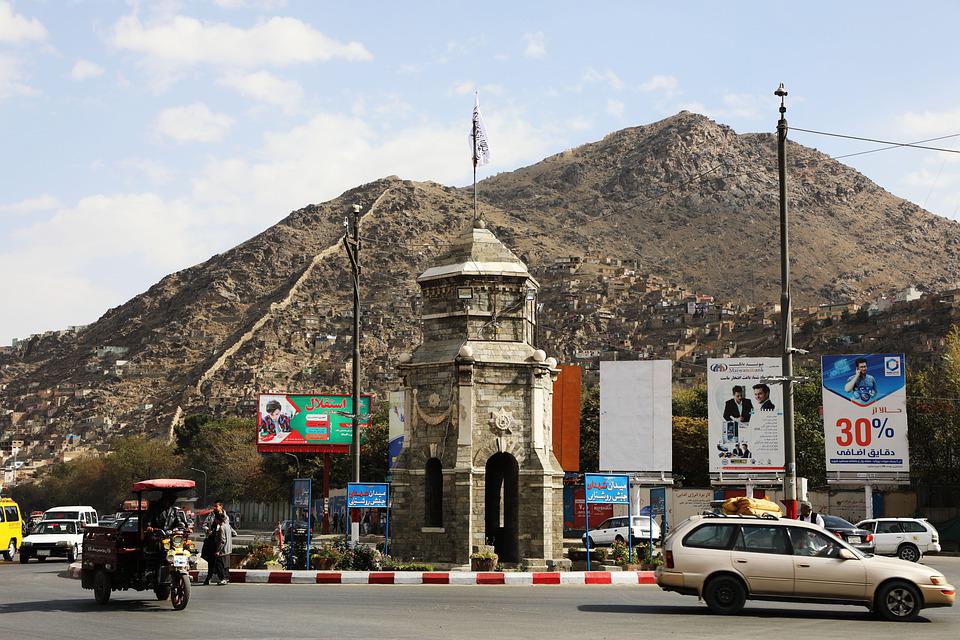Afghanistan suffered yet another bombing in its capital Kabul in recent days. A bomb in a mosque during evening prayers this week killed 21 people and injured 33 others.
Authorities in Afghanistan Thursday said the bombing of a mosque in Kabul Wednesday left 21 people killed and 33 people injured, with the blast taking place during evening prayers. Witnesses told Reuters that the bombing also shattered the windows of the buildings near the mosque located in a neighborhood in northern Kabul.
This comes as the Taliban said they were restoring security to the war-torn country, which has already seen a decline in violence. This also follows one year since the insurgent group led an offensive to retake control of Afghanistan as US military forces withdrew from the country, ending the nearly 20-year conflict.
However, despite the decline in violence, several large attacks claimed by Taliban rival Islamic State, have taken place in Afghanistan in recent months.
The United Nations Mission to Afghanistan UNAMA condemned the latest attack, expressing concern over the series of explosions which have killed an overall 250 people, the highest monthly number of fatalities in the past year.
“With security deteriorating, the UN calls on the de facto Taliban authorities to take concrete steps to prevent all forms of terrorism in Afghanistan,” said UNAMA.
The Italian NGO-run Emergency Hospital facility said it has admitted 27 people, including five children, in the latest blast in the mosque. Two people were reported to be dead on arrival, and one patient died in the emergency room.
The Red Cross Monday appealed to countries and donors to put aside political objections and resume delivering aid to Afghanistan and its state institutions to tackle the humanitarian crisis that remains.
The International Committee of the Red Cross is among those providing aid as donors abruptly stopped funding in response to the Taliban’s takeover amidst concerns over the group’s treatment of women and girls and out of fears of breaching sanctions.
“Humanitarian organizations alone cannot replace public institutions of a country of 40 million people,” ICRC director-general Robert Mardini told Reuters. “Our key message is really to ask states and development agencies to return to Afghanistan and continue their support for Afghans who are already facing today an unbearable situation.”



 Trump’s Inflation Claims Clash With Voters’ Cost-of-Living Reality
Trump’s Inflation Claims Clash With Voters’ Cost-of-Living Reality  Antonio José Seguro Poised for Landslide Win in Portugal Presidential Runoff
Antonio José Seguro Poised for Landslide Win in Portugal Presidential Runoff  Anutin’s Bhumjaithai Party Wins Thai Election, Signals Shift Toward Political Stability
Anutin’s Bhumjaithai Party Wins Thai Election, Signals Shift Toward Political Stability  Trump Backs Nexstar–Tegna Merger Amid Shifting U.S. Media Landscape
Trump Backs Nexstar–Tegna Merger Amid Shifting U.S. Media Landscape  Trump Administration Appeals Court Order to Release Hudson Tunnel Project Funding
Trump Administration Appeals Court Order to Release Hudson Tunnel Project Funding  US Pushes Ukraine-Russia Peace Talks Before Summer Amid Escalating Attacks
US Pushes Ukraine-Russia Peace Talks Before Summer Amid Escalating Attacks  Jack Lang Resigns as Head of Arab World Institute Amid Epstein Controversy
Jack Lang Resigns as Head of Arab World Institute Amid Epstein Controversy  U.S. Lawmakers to Review Unredacted Jeffrey Epstein DOJ Files Starting Monday
U.S. Lawmakers to Review Unredacted Jeffrey Epstein DOJ Files Starting Monday  Bosnian Serb Presidential Rerun Confirms Victory for Dodik Ally Amid Allegations of Irregularities
Bosnian Serb Presidential Rerun Confirms Victory for Dodik Ally Amid Allegations of Irregularities  Federal Judge Restores Funding for Gateway Rail Tunnel Project
Federal Judge Restores Funding for Gateway Rail Tunnel Project  Ghislaine Maxwell to Invoke Fifth Amendment at House Oversight Committee Deposition
Ghislaine Maxwell to Invoke Fifth Amendment at House Oversight Committee Deposition  Bangladesh Election 2026: A Turning Point After Years of Political Suppression
Bangladesh Election 2026: A Turning Point After Years of Political Suppression  Trump Congratulates Japan’s First Female Prime Minister Sanae Takaichi After Historic Election Victory
Trump Congratulates Japan’s First Female Prime Minister Sanae Takaichi After Historic Election Victory  Trump Says “Very Good Talks” Underway on Russia-Ukraine War as Peace Efforts Continue
Trump Says “Very Good Talks” Underway on Russia-Ukraine War as Peace Efforts Continue  New York Legalizes Medical Aid in Dying for Terminally Ill Patients
New York Legalizes Medical Aid in Dying for Terminally Ill Patients  Israel Approves West Bank Measures Expanding Settler Land Access
Israel Approves West Bank Measures Expanding Settler Land Access  Trump Allows Commercial Fishing in Protected New England Waters
Trump Allows Commercial Fishing in Protected New England Waters 































